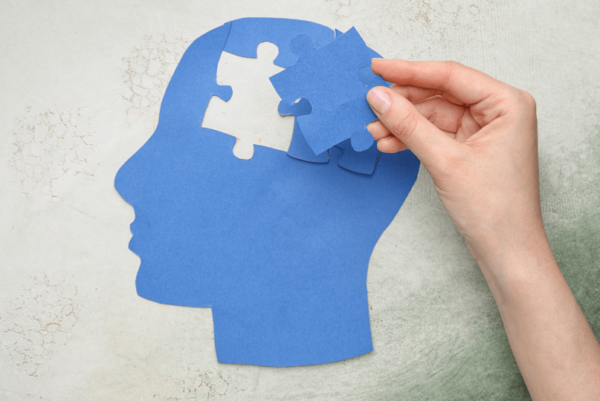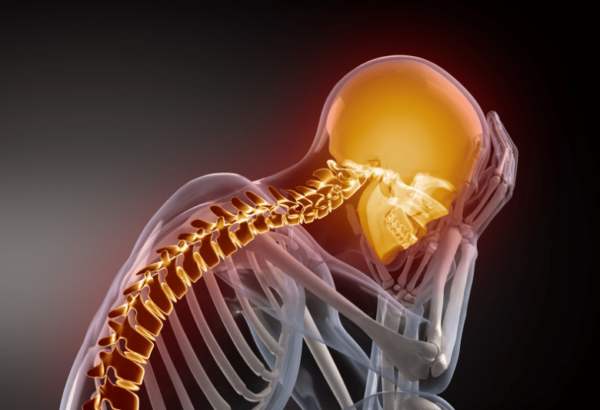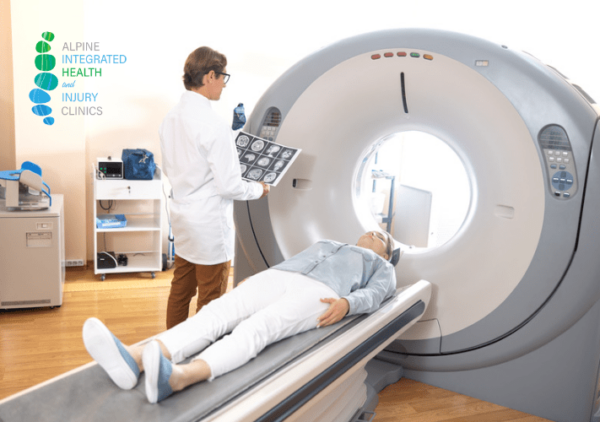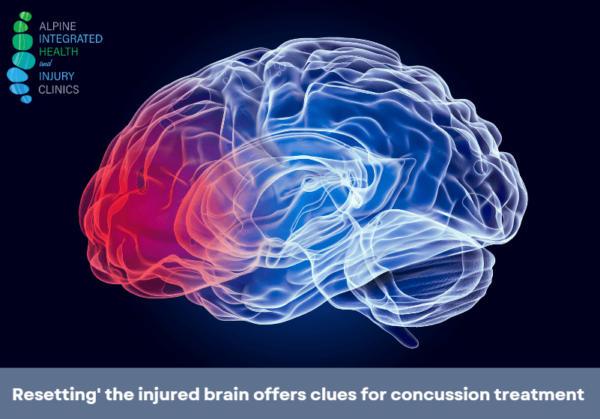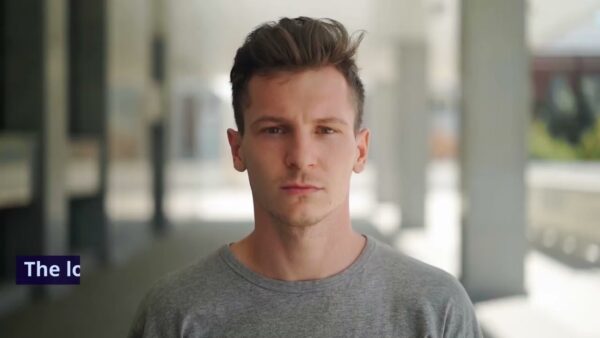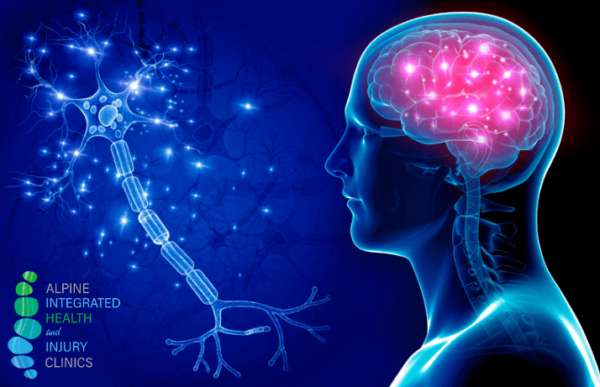Chronic Concussion Syndrome (CCS), also known as Post Concussion Syndrome, is a complex disorder that can occur following a concussion, a type of mild traumatic brain injury typically resulting from a head injury. It is characterized by a variety of post-concussion symptoms that persist weeks to months after the initial injury.
These symptoms can range from physical, such as headaches and dizziness, to cognitive and emotional, like difficulty with concentration and mood changes. In some cases, these symptoms can become worse over time, interfering with daily activities and overall quality of life. Some individuals may also experience autonomic nervous system dysfunction, which can manifest as irregular blood pressure and heart rate.
Risk factors for developing post concussion syndrome may include the severity of the initial concussion, age, gender, and previous history of concussions or other brain injuries. It is also worth noting that even minor head injuries can result in this syndrome.
Diagnosis of CCS often involves a comprehensive evaluation by a healthcare provider, which may include cognitive testing and magnetic resonance imaging (MRI) to rule out other conditions such as brain bleeds. Treatment options are typically aimed at alleviating symptoms and may involve a combination of physical activity, cognitive therapy, occupational therapy, vision therapy, and in some cases, neuromuscular therapy like massage.
It’s crucial for anyone who suspects they may have a concussion to seek medical care promptly. Early intervention can help manage symptoms, promote optimal brain function, and prevent complications such as persistent post concussion syndrome. While recovery times can vary greatly, with appropriate medical care and lifestyle adjustments, most people can expect a good outcome.
The impact of CCS on daily life
The symptoms of CCS can last for days, weeks, or even longer. They may include physical discomforts such as headaches and dizziness, but also extend to cognitive and emotional challenges. For instance, individuals with CCS may face trouble sleeping, experience heightened stress, and encounter mental health problems.
Living with CCS can be particularly challenging. Some individuals become homebound, trapped by debilitating headaches, extreme sensitivity to light and sound, and dizziness. The syndrome can also impact memory, balance, mood, and result in chronic headaches. In some cases, multiple concussions can lead to depression, anger, memory loss, and other symptoms that significantly alter a person’s sense of self.
Moreover, research has shown that the effects of concussion and post-concussion symptoms can have long-term consequences. Despite these challenges, it’s important to note that recovery is possible, although it may take longer than expected. With appropriate medical intervention and support, individuals with CCS can manage their symptoms and improve their quality of life.
Risk Factors for Chronic Concussion Syndrome
A number of risk factors have been linked to an increased chance of experiencing CCS:
- Age: It appears that older individuals are more prone to enduring symptoms of post-concussion.
- Gender: Females often report longer periods of recovery and a higher frequency of CCS symptoms compared to males.
- History of Concussions: Those who have suffered concussions previously are at heightened risk for CCS with future concussions.
- Participation in Collision Sports: Engaging in sports with a high risk of contact, like football or hockey, raises the likelihood of repeated head injuries.
- Women’s Soccer: This sport, in particular, has shown a significant link to concussion risks and extended recovery periods.
- Mental Health History: Existing mental health conditions, such as depression or anxiety, may predispose individuals to prolonged symptoms following a concussion.
- Socioeconomic Status: Individuals from lower socioeconomic backgrounds might face a greater risk of PCS, possibly due to challenges in accessing healthcare or delays in receiving treatment.
- Other Contributing Factors: The initial severity of symptoms, experiencing loss of consciousness at the injury time, and a history of headaches might also forecast a risk of longer-lasting symptoms.
Recognizing these risk factors is crucial for identifying those at greater risk for CCS, enabling focused efforts on intervention and monitoring to lessen the syndrome’s effects. Prompt and proper management of concussions, ensuring sufficient rest, medical oversight, and a careful return to regular activities, is key in avoiding the progression from immediate concussion symptoms to CCS.
The difference between a regular concussion and Chronic Concussion Syndrome
The distinction between a concussion and Chronic Concussion Syndrome (CCS) primarily lies in the duration and persistence of symptoms following head trauma. A concussion is a form of mild traumatic brain injury (TBI) that temporarily affects brain function, usually resulting from a blow to the head, violent shaking, or any force that causes the brain to move rapidly within the skull. Symptoms can include headaches, confusion, dizziness, and temporary loss of consciousness among others, but they typically resolve within a couple of weeks with proper rest and care.
Chronic Concussion Syndrome, on the other hand, refers to a situation where these concussion symptoms persist beyond the typical recovery period, extending for months or even longer. It’s noted that while most individuals recover fully from a concussion in time, a subset experiences prolonged symptoms, which characterizes Post-Concussion Syndrome (Cleveland Clinic). Persistent post-concussive symptoms can include physical, cognitive, and emotional challenges such as persistent headaches, difficulty concentrating, irritability, and sleep disturbances (Mayo Clinic).
Both Post-Concussion Syndrome (PCS) and Chronic Traumatic Encephalopathy (CTE) are acknowledged as neurological disorders stemming from head injuries, but they differ significantly in their nature and prognosis. CTE is a more severe, long-term condition associated with repeated head traumas, whereas PCS can result from a single incident and might not necessarily lead to long-term brain damage if managed appropriately
Diagnosis of Chronic Concussion Syndrome
(CCS)—present a significant challenge in both diagnosis and management. This condition arises when individuals experience prolonged symptoms following a concussion, which is a type of traumatic brain injury (TBI) caused by a bump, blow, or jolt to the head.
Understanding Post-Concussive Symptoms
According to the Mayo Clinic, symptoms of post-concussion syndrome can include headaches, dizziness, fatigue, irritability, insomnia, concentration and memory problems, and sensitivity to light and noise. These symptoms can last longer than expected after the initial injury, sometimes persisting for weeks or even months (Mayo Clinic).
Diagnosis Challenges
One of the main challenges with CCS is that there is no definitive test for diagnosing the condition. Healthcare providers generally base their diagnosis on a detailed history of the head injury and the symptoms reported by the patient. Diagnostic imaging tests like MRI or CT scans typically do not show any abnormalities in patients with CCS, making the diagnosis reliant on clinical evaluation and symptom reporting (Mayo Clinic; WebMD).
Research Insights
Research highlighted indicates that persistent postconcussive syndrome occurs when symptoms persist beyond three months after the initial TBI. This duration marks a significant deviation from the normal recovery trajectory, which usually sees symptoms resolve within weeks (NCBI). Diagnosis can involve functional neurocognitive imaging (fNCI), various physical and neuropsychological testing, alongside symptom reporting, providing a more comprehensive assessment of the condition.
Criteria for Diagnosis
The International Classification of Diseases, 10th Revision (ICD-10) criteria for post-concussion syndrome includes a history of TBI and the presence of three or more of the following eight symptoms: headache, dizziness, fatigue, irritability, insomnia, concentration or memory difficulty, intolerance of stress, emotion, or alcohol, and preoccupation with the above symptoms and fear of brain damage with hypochondriacal concern and adoption of sick role (eMedicine).
Healthcare providers play a crucial role in the diagnosis and management of Chronic Concussion Syndrome (CCS), also known as Post-concussion Syndrome (PCS). As indicated by various sources, their involvement is essential from the initial assessment to the ongoing management and support for individuals experiencing prolonged symptoms following a concussion.
Initial Diagnosis
According to the Mayo Clinic, a primary care provider often makes the initial diagnosis of a concussion or PCS. This early diagnosis is critical for managing the condition effectively and preventing further complications (Mayo Clinic). The CDC also emphasizes the significant role of healthcare providers in improving patient health outcomes through early diagnosis, management, and education on concussion prevention (CDC).
Symptom Assessment
Persistent symptoms that may indicate PCS include headaches, dizziness, and cognitive difficulties such as problems with concentration and memory. These symptoms can last for weeks to months, necessitating a comprehensive evaluation by healthcare professionals to rule out other conditions and confirm a PCS diagnosis (Mayo Clinic).
Diagnostic Tools and Criteria
The diagnosis of PCS is mainly based on the patient’s medical history and reported symptoms since there is no definitive test for the syndrome. Healthcare providers may utilize symptom checklists, neuropsychological tests, and postural stability tests among others, to aid in the diagnosis and monitor recovery (WebMD; AAFP). StatPearls also mentions the use of screening tools by providers to identify the root cause of a patient’s residual post-concussive symptoms, which can guide the prescription of active treatments tailored to the patient’s needs (NCBI).
Importance of Early and Accurate Diagnosis
An early and accurate diagnosis is paramount for managing PCS effectively. It allows healthcare providers to offer the most appropriate interventions to alleviate symptoms and support the patient’s recovery. Prolonged PCS is associated with poor outcomes, including lower community reintegration and higher healthcare utilization, underscoring the importance of timely and effective management by healthcare professionals (NCBI).
The treatment of Chronic Concussion Syndrome (CCS), also known as Post-Concussion Syndrome (PCS), involves a multifaceted approach, given the complexity and variability of symptoms among individuals. Based on the latest research and expert recommendations, several strategies have been identified to facilitate recovery and manage symptoms effectively.
Active Rehabilitation
Active rehabilitation is a cornerstone of CCS treatment. This approach typically includes physical therapy aimed at improving balance and strength, vestibular therapy for dizziness and balance issues, and cognitive therapy to address memory, concentration, and other cognitive challenges. The emphasis is on gradual, guided exercise and activities tailored to the individual’s specific symptoms and tolerance levels.
Medication Management
While no medications are specifically approved for the treatment of memory and thinking problems after a mild traumatic brain injury, certain drugs can be used to alleviate specific symptoms of CCS. For instance, pain relievers such as ibuprofen or Tylenol may be recommended for headache management. Additionally, medications like promethazine, ondansetron, or metoclopramide may be prescribed to relieve nausea or motion-sickness-like symptoms, as noted by the Cleveland Clinic (Cleveland Clinic).
Multifaceted Approaches to Rehabilitation
A comprehensive approach to rehabilitation that addresses the physical, social, and psychological aspects of recovery may enhance outcomes for individuals with CCS. This might include strategies to manage sleep disturbances, fatigue, and emotional challenges such as anxiety or depression. The National Center for Biotechnology Information (NCBI) supports the use of multifaceted approaches in the treatment of prolonged symptoms following a concussion (NCBI).
Neuro-Optometric Rehabilitation
Neuro-Optometric Rehabilitation therapy is an emerging treatment option for individuals with visual and perceptual difficulties resulting from a concussion. This therapy utilizes therapeutic prisms, lenses, filters, and occlusion techniques to stimulate brain function and assist in the recovery process. The Concussion Foundation provides information on this specialized form of rehabilitation as a potential treatment for PCS (Concussion Foundation).
Evidence-Based Treatment Options
Research continues to identify effective, evidence-based treatment options for concussion and PCS. Exercise therapy, manual therapy & neck treatment, vestibular therapy, vision therapy, and education & reassurance have been highlighted as the top five most effective treatments. These approaches aim to mitigate symptoms and promote recovery by addressing the unique needs of each individual with CCS (Complete Concussions).
